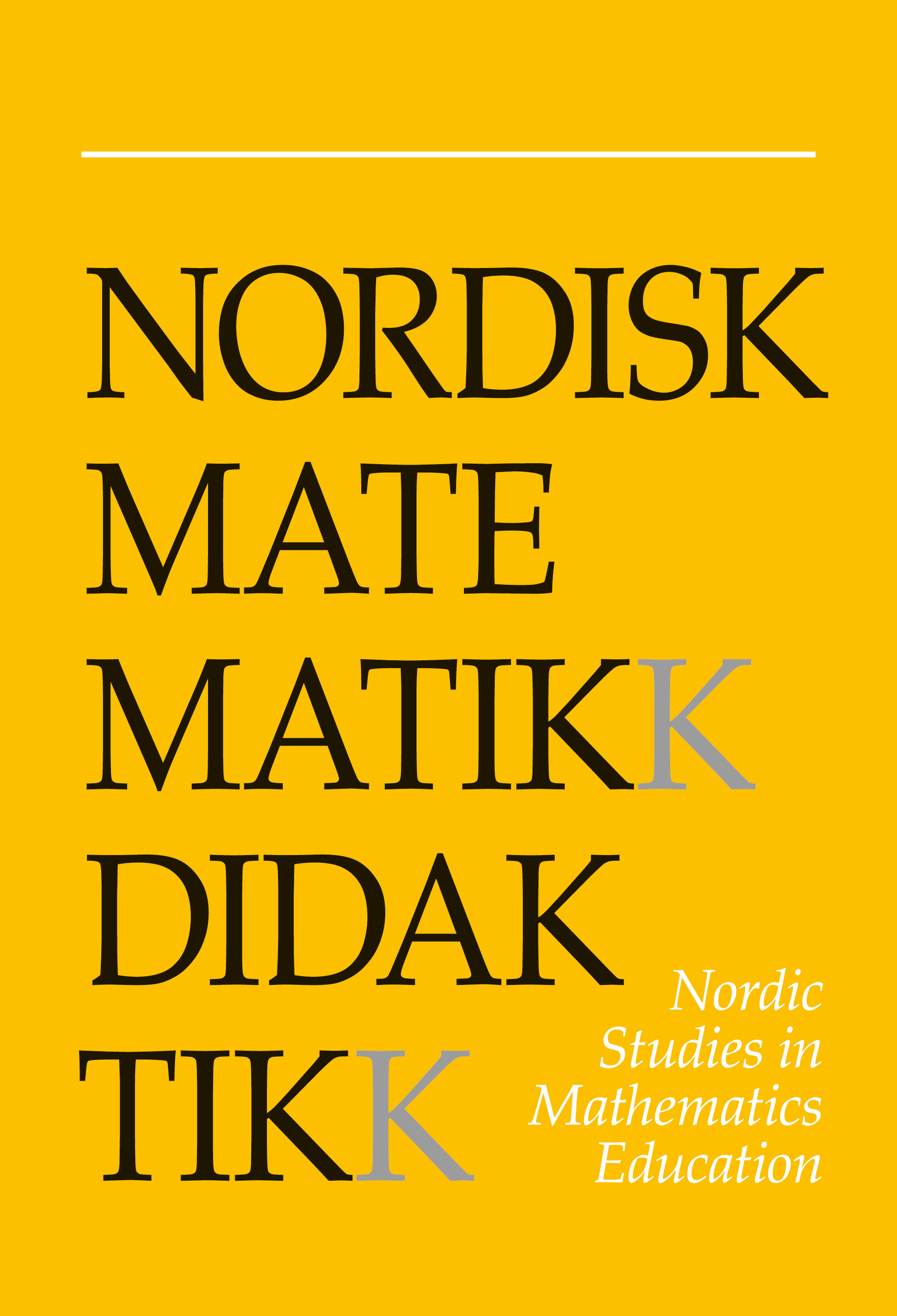Commentary on Theorizing in mathematics education research: differences in modes and quality
DOI:
https://doi.org/10.7146/nomad.v15i1.148236Abstract
The authors confront a major and troubling issue for the field of mathematics education ...
References
Artigue, M. (2002). Learning mathematics in a CAS environment: the genesis of a reflection about instrumentation and the dialectics between technical and conceptual work. International Journal of Computers for Mathematical Learning, 7, 245-274. https://doi.org/10.1023/A:1022103903080
Bernstein, B. (1996). Pedagogy, symbolic control and identity: theory, research, critique. London: Taylor & Francis.
Chevallard, Y. (1985). La transposition didactique. Du savoir savant au savoir enseigné. Grenoble: La Pensée Sauvage.
Chevallard, Y. (1992a). Fondamentals concepts of didactics: perspectives given by an anthropological approach. Recherches en Didactique des Mathématiques, 12 (1), 73-112.
Chevallard, Y. (1992b). A theoretical approach to curricula. Journal für Mathematik Didaktik, 2/3, 215-230. https://doi.org/10.1007/BF03338779
Chevallard, Y.(1999a). L'analyse des pratiques enseignantes en théorie anthropologique du didactique. Recherches en Didactique des Mathématiques, 19 (2), 221-266.
Chevallard, Y. (1999b). Didactique? you must be joking! A critical comment on terminology. Instructional Science, 27 , 5-7. https://doi.org/10.1007/BF00890681
Gascón, J. (2003). From the Cognitive Program to the Epistemological Program in didactics of mathematics. Two incommensurable scientific research programs? for the learning of mathematics, 23 (2), 44-55.
Greer, B. (Ed.) (2008). Critical notice on the National Mathematics Advisory Panel Report. The Montana Mathematics Enthusiast, 5 (2&3), 365-428. https://doi.org/10.54870/1551-3440.1115
Jameson, F. (1983). Postmodernism and consumer society. In H. Foster (Ed.), The anti-aesthetic: essays on postmodern culture (pp. 111-125). Port Townsend, WA.: Bay Press.
Lerman, S. (2000). The social turn in mathematics education research. In J. Boaler (Ed.), Multiple perspectives a mathematics teaching and learning. (pp. 19-44). Westport, CT: Ablex Publishing. https://doi.org/10.5040/9798400688362.0005
Sierpinska, A. & Kilpatrick, J. (Eds.) (1998). Mathematics education as a research domain: a search for identity. Dordrecht: Kluwer Academic Publishers. https://doi.org/10.1007/978-94-011-5190-0
Sierpinska, A. & Lerman, S. (1996). Epistemologies of mathematics and mathematics education. In A. Bishop et al. (Eds), Handbook of research in mathematics education (pp. 827-876). Dordrecht: Kluwer Academic Publishers. https://doi.org/10.1007/978-94-009-1465-0_26
Sriraman, B. (2008). On the origins of social justice: Darwin, Freire, Marx and Vivekananda. In B. Sriraman (Ed.), International perspectives on social justice in mathematics education (pp. 1-9). Charlotte, NC.: Information Age Publishing.
Sriraman, B. & Törner, G. (2008). Political union/mathematical education disunion: building bridges in European didactic traditions. In L. English et al. (Eds.), Handbook of international research in mathematics education (2nd ed.) (pp. 656-690). New York: Routledge.
Sriraman, B. & English, L. (Eds) (2010). Theories of mathematics education: seeking new frontiers. Berlin: Springer. https://doi.org/10.1007/978-3-642-00742-2
Walshaw. M. (Ed.) (2010). Unpacking pedagogy: new perspectives for mathematics classrooms. Charlotte, NC.: Information Age Publishing.
Downloads
Published
How to Cite
Issue
Section
License

This work is licensed under a Creative Commons Attribution-NonCommercial-ShareAlike 4.0 International License.



